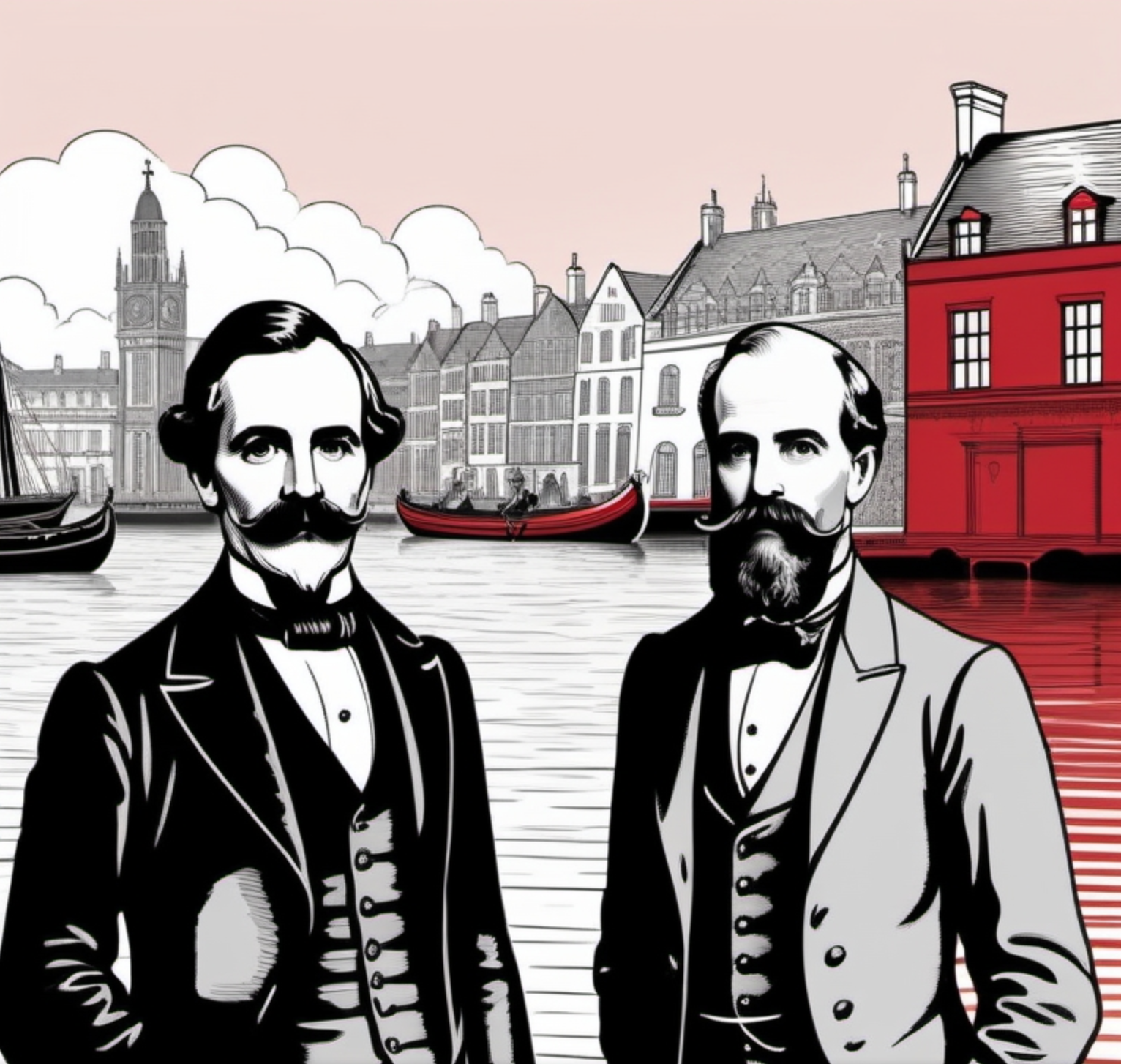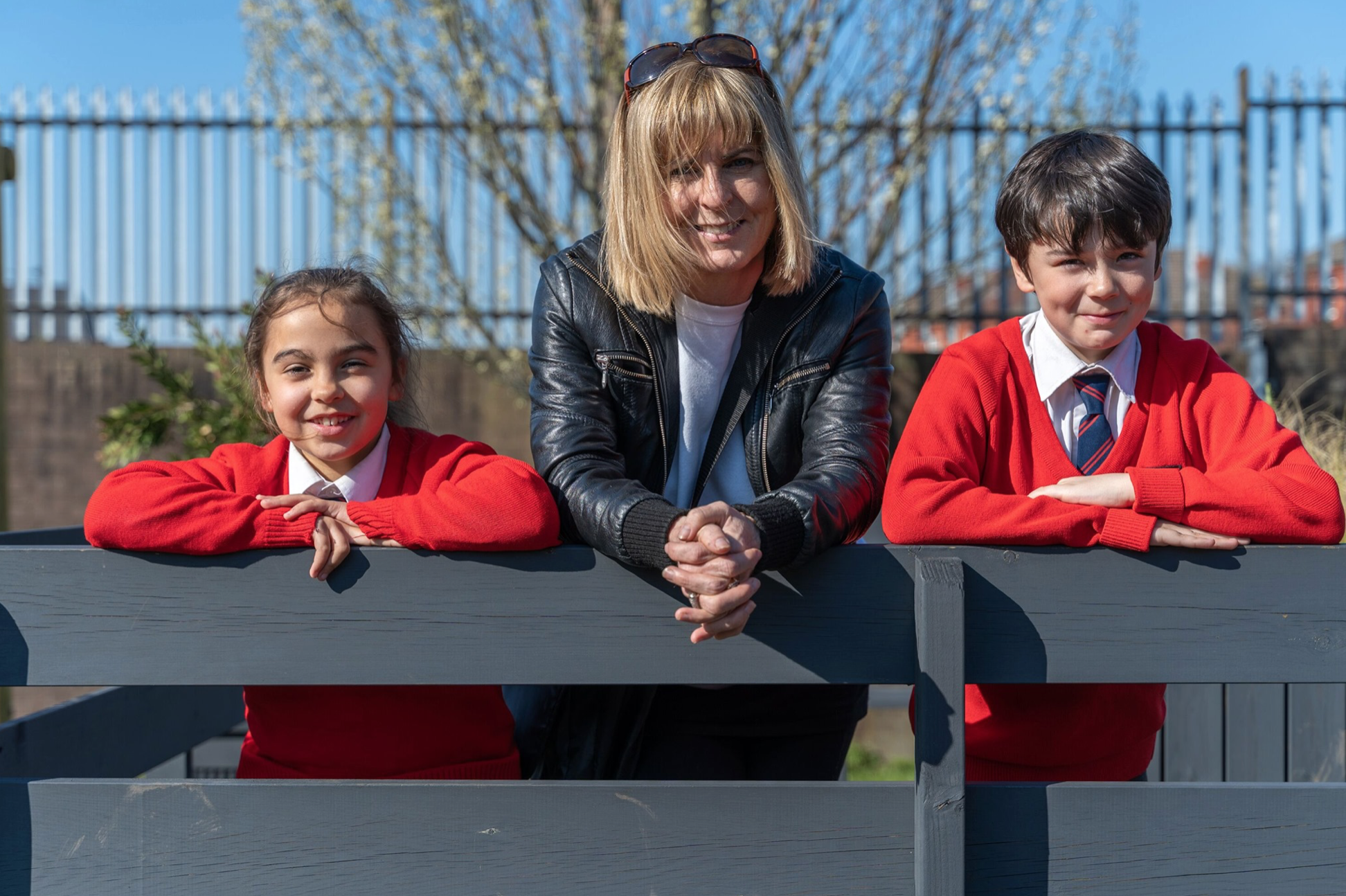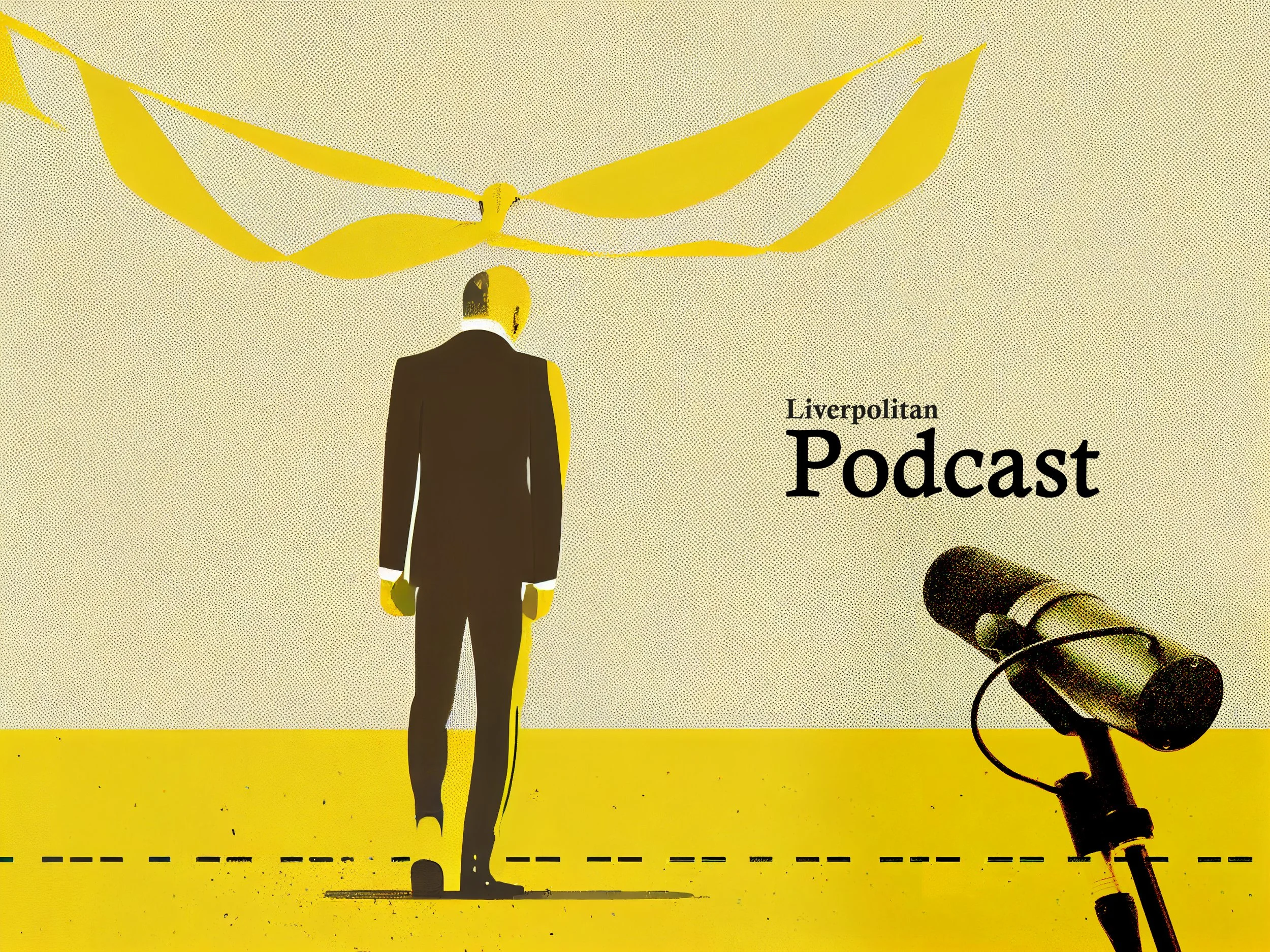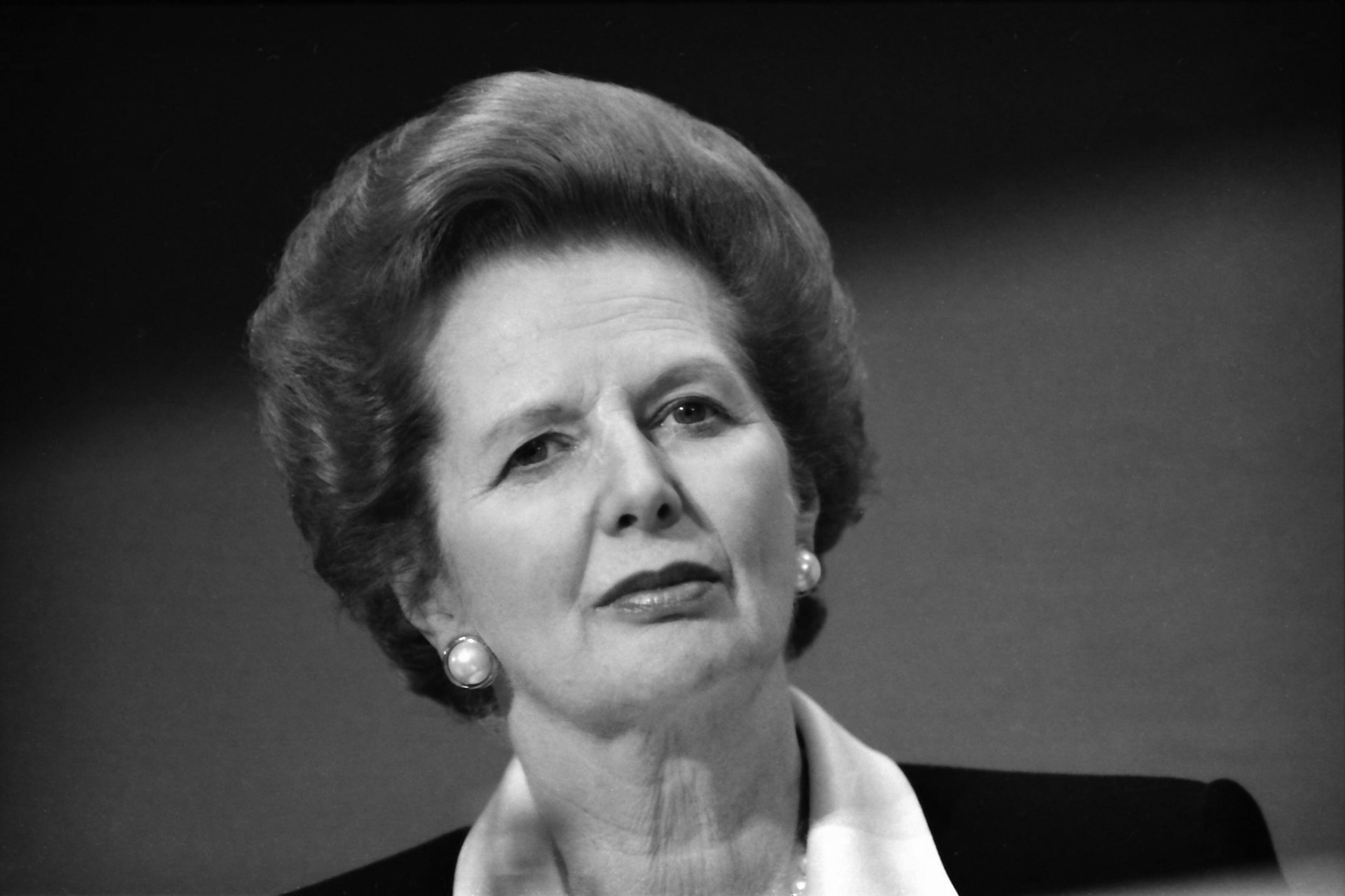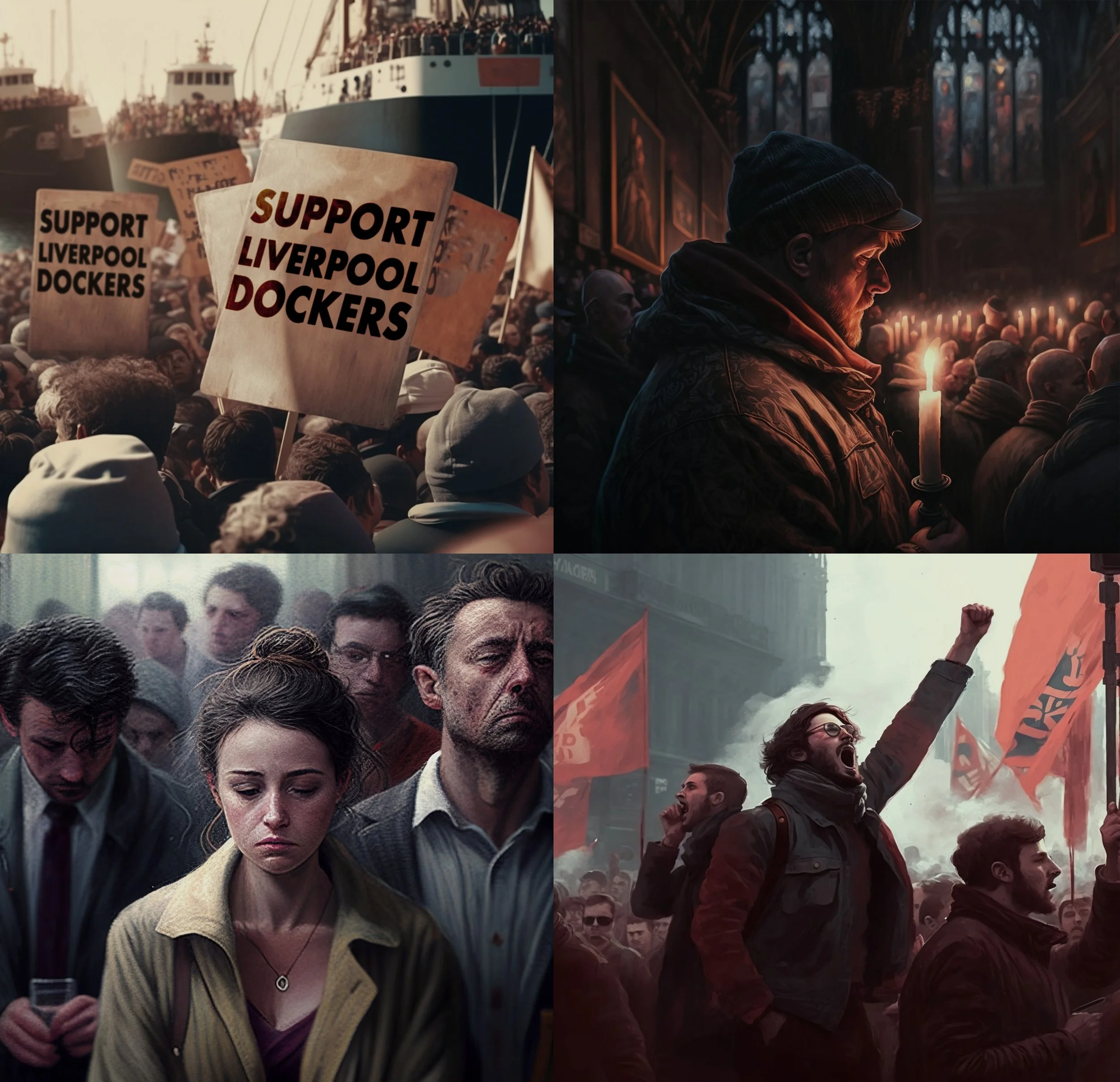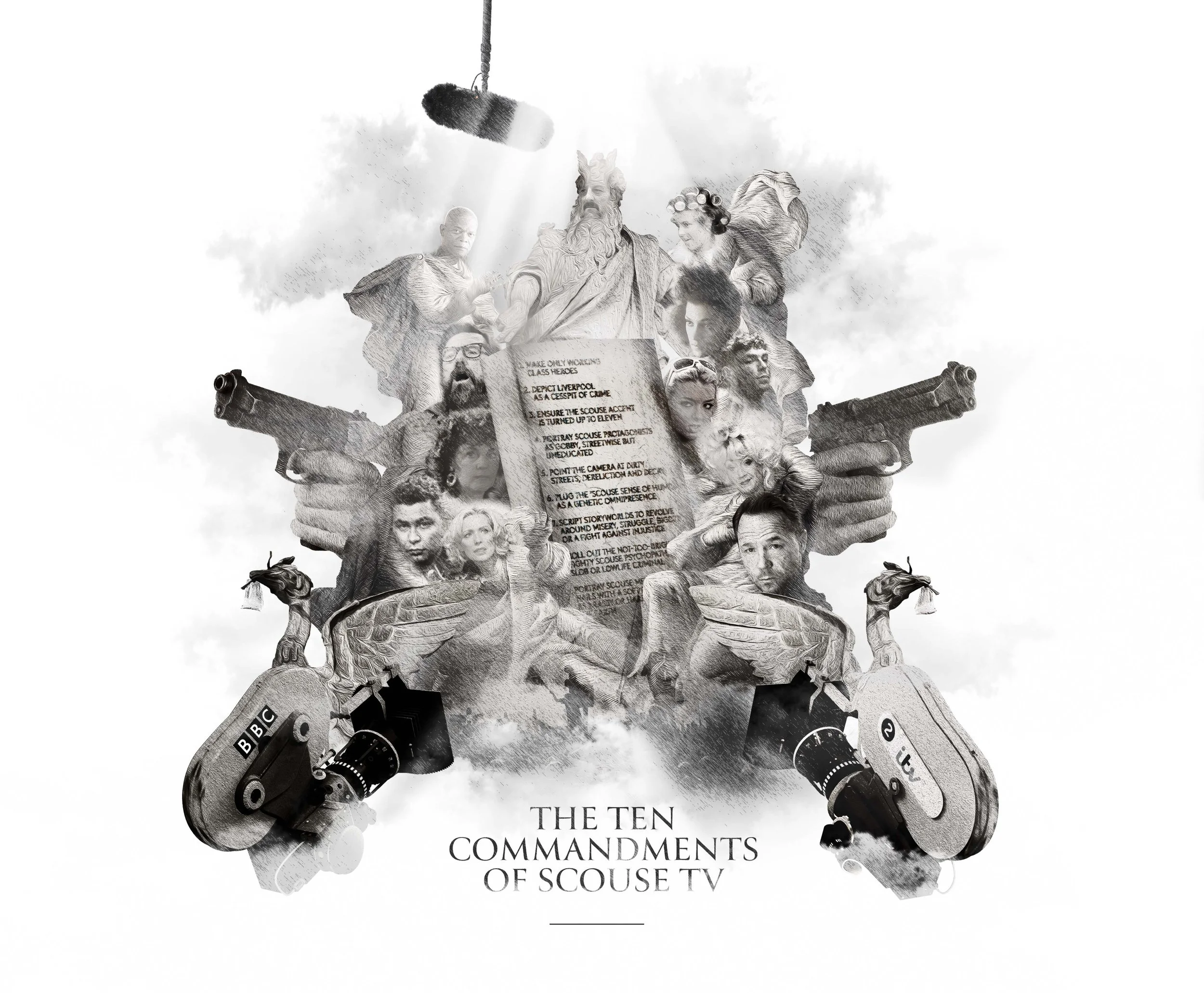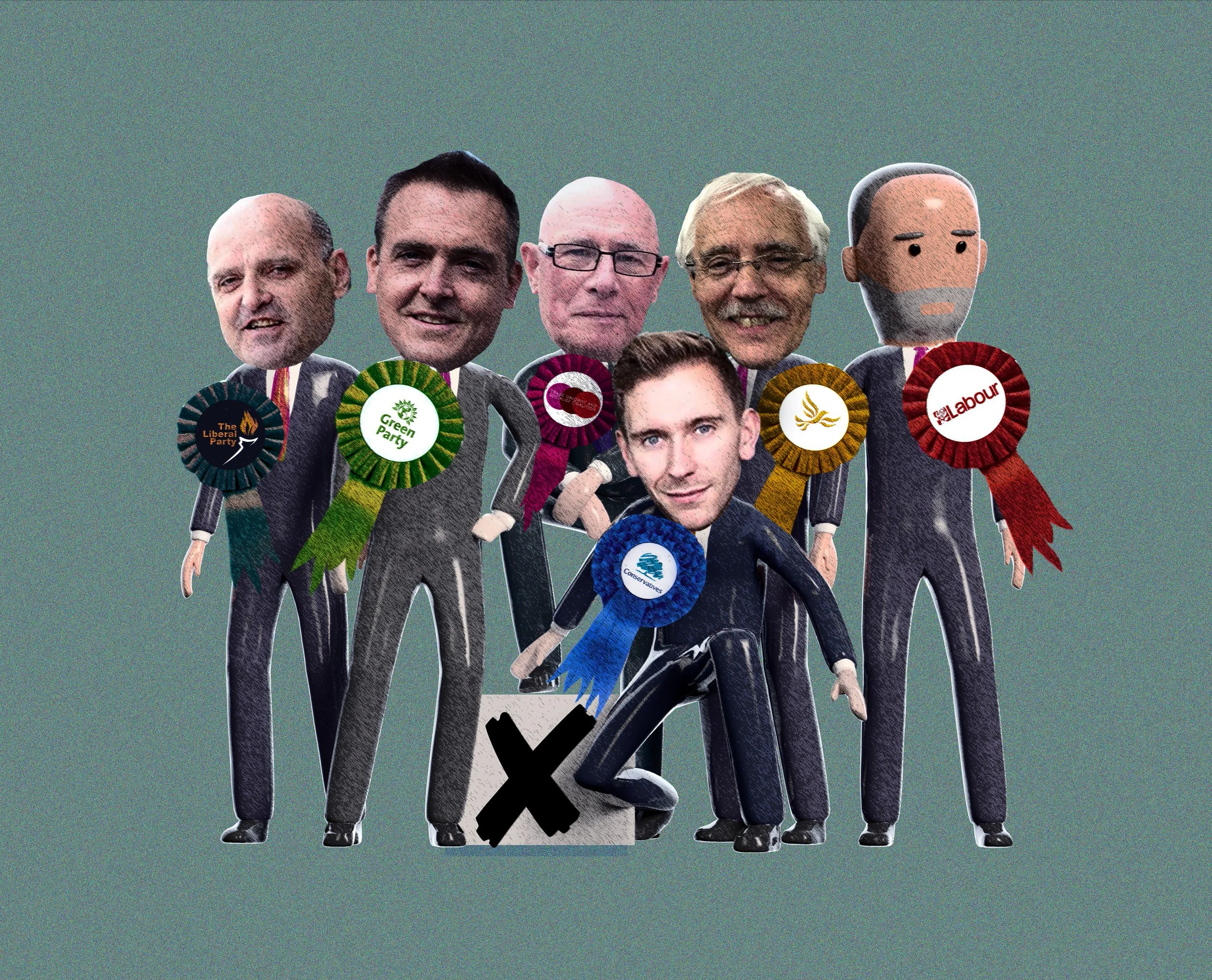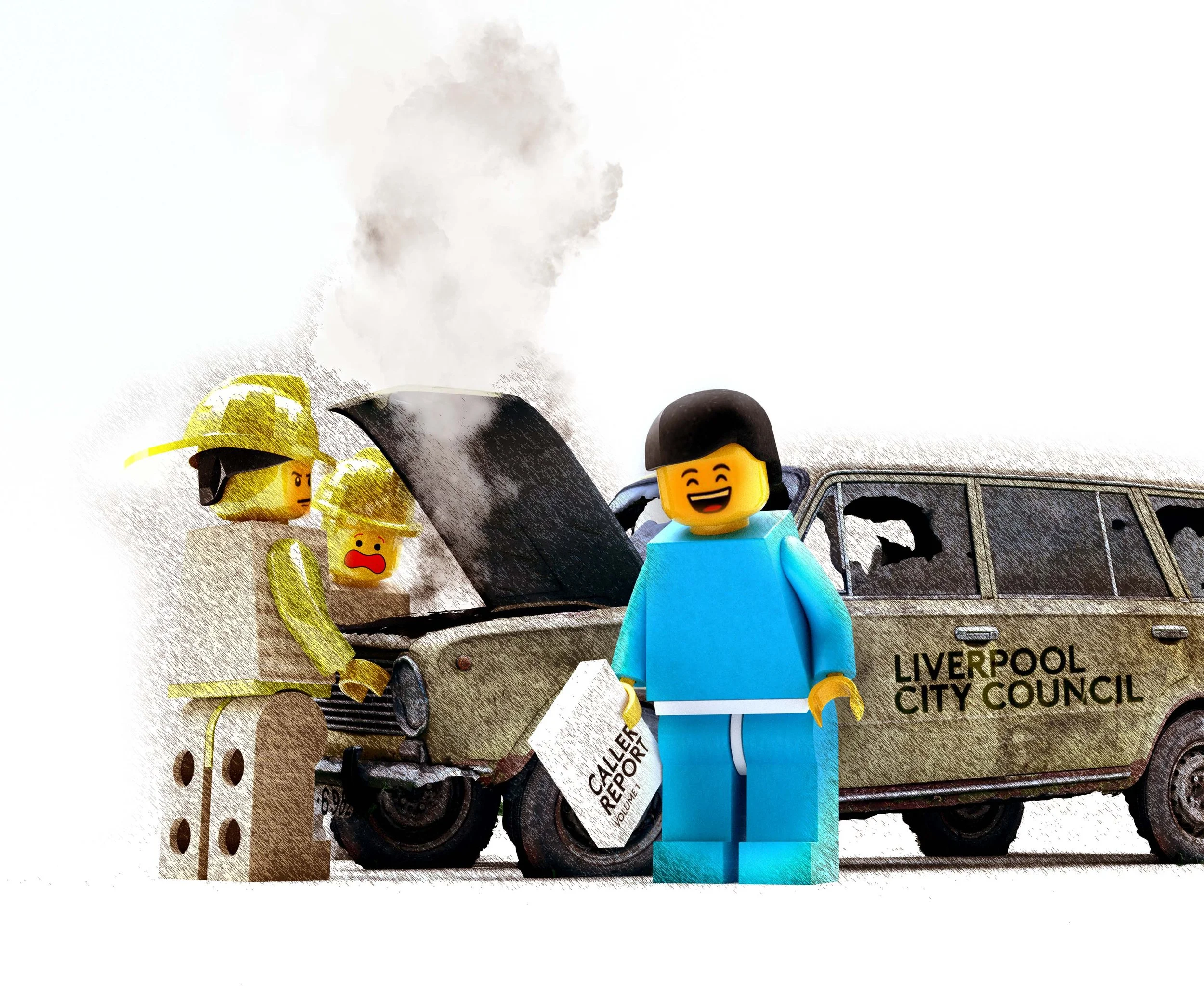Recent features
Face Value: What makes a good council?
Are diversity and representation the most important determinants of a good council? Reacting to our previous article, Child Labour, Liverpool’s Lib Dem Leader Richard Kemp, the city's longest standing councillor, leans on his years of experience to explain what he thinks makes for a successful council chamber.
Richard Kemp
There have been a lot of comments on the Liverpolitan Twitter feed recently after they published Child Labour, an article about the number of young councillors coming on to the scene in Liverpool.
I was struck by the defensive nature of some of them especially from those who had been elected as young councillors themselves. Yet no-one has suggested that young councillors are a bad thing. They can offer a viewpoint and an energy that older members of the chamber might struggle to bring. A good council will use the knowledge and energy of young people as part of a balanced team where their voices can be heard rather than dismissed as it so often is.
I thought that I might contribute to this discussion because although at 69, I’m clearly not a young councillor, I was once and my experience of moving through the ages might help the debate. I was first elected at 22, became the equivalent of a Cabinet Member at 24, and after 39 years in office, I’m now the longest serving councillor in Liverpool. In a variety of roles including as national leader of Lib Dem councillors I have supported elected members in more than 50 councils across the country so I’ve seen a lot of local government – both the good and the bad.
This experience does hopefully give me a long-term perspective from which to answer two related questions which I want to address - ’What should a good council look like?’ and ‘What does a good councillor look like?’
So to the first question. In a nutshell, a council should look as much as possible like the people of the area it represents. This applies both to the elected side of a council and also to its workforce, but in this article I’m just focusing on the elected side.
“When choosing candidates we have to be looking at factors like gender balance, ethnicity, age and class. Does what’s found in the chamber reflect what’s found out on the streets?”
Why is this important? Because having a diversity of councillors means that there is a diversity of knowledge and experiences within the council chamber. Different groups of people are impacted by decisions in different ways so having broad representation ensures that we keep our eyes open and our hearts sensitive to the different priorities of the groups that make up our population. That’s really important because even if our intentions are good as councillors we can’t presume we understand everything or even feel everything that is important to our electorate.
For example, I have never been discriminated against on the grounds of race, gender or sexuality. I can empathise with those who have and have a feeling for their challenges but I do not have that direct experience. Perhaps it’s the same with generational differences. I wasn’t born into the computer age, so I don’t have that instinctive feel that younger people do when discussing the challenges of technology, the industries of the future, the pitfalls of social media and issues around how we best communicate with each other. Ultimately, each person has their own stories to tell, and the better our representation, the more able we are to harness them to improve policies and more effectively monitor their success from different perspectives.
All of this means that when choosing candidates to stand for our parties we have to be looking at factors like gender balance, ethnicity, age and class. Does what’s found in the chamber reflect what’s found out on the streets? It’s worth looking at some of the available statistics. In Liverpool, according to the last census data 51% of our population are female and 49% male, while about 14% are from ethnic minorities including those born in other countries. A wide range of faiths are represented. Our population trends slightly younger than the national average with the under 30s clustering in the centre and average ages increasing as you move outwards especially to the north. When you start to look at profession and class, manual workers now make up a smaller proportion of our elected officials compared to when I first became a councillor, but that reflects changes in the city and society as a whole. The age of mass employment in big unionised factories like Tate & Lyle, Ogdens Tobacco, Dunlop, Courtaulds or, of course, the docks is long over, a decline which set in many years ago as computers and mechanisation took over.
Liverpool Council is currently completing a survey of councillors but the last one, conducted five years ago, showed that only 40% of elected members were female. However, the last five years has brought about a big change in that figure with Liverpool now one of the few councils in the country to achieve gender parity. We appear to have made less progress in other areas. Later this year we will have access to the first results from the 2021 National Census. This will provide us with the most up-to-date information about the make-up of the city’s population compared to that of its councillors. Those results should prove useful as we continue to try to improve representation.
Councillors from Liverpool and the Wirral had their say on our article, Child Labour
However, and this is an important point, diversity is not enough on its own. Having elected members that look like the community does not mean they’d make inherently better councillors. Being a councillor involves passion and compassion; with a strong civic desire to serve the community. It involves commitment. It involves hard work. Being who you are is only the start. It’s what you want to do and how you want to do that counts and it takes a council chamber full of people with vision and ability to make a good council that is both representative and capable.
If we turn our attention to the second question, ‘What does a good councillor looks like?’, we can see why the ideal council is difficult to create. Your average councillor has four calls upon their time. In addition to what can be the hard and demanding grind of the job of councillor, they also need to earn a living, care for their family and help run their political party which usually involves a lot of campaigning and canvassing. Juggling these different demands is a challenge and the level of difficulty lands differently on different people effected by things such as time of life, financial security, responsibilities for others and many other factors.
Being a councillor in a big city like Liverpool is a particularly arduous task if you do it properly and most councillors of most parties do. The life of a councillor involves attending council and committee meetings, keeping up-to-date with the constant stream of information and documents, coordinating with other councillors from your political group, and undergoing professional training when necessary. And all the while you are trying to weigh up matters, figuring out what decisions you have to take, and the need to make decisions is continuous. We then have to work within the communities that we represent, fact-finding and campaigning alongside the many volunteers who keep community life ticking over. For many of us council life is almost 24/7 and 365 days a year.
It’s worth noting that councillors do not receive a salary. Instead they receive a basic annual allowance which is worth £10,590 plus expenses. Those councillors who have additional responsibilities such as Cabinet members receive additional Special Responsibility Allowances (SRAs) but of course, many do not. This means, that most have no choice but to work for a living. Very few employers like the idea of a member of their staff being a councillor. The fact that we can legally demand unpaid time off to a certain level is unattractive to many which is why councillors often work for the public sector, unions or choose to be self-employed.
Outside of work, councillors have families and face the same pressures as the rest of the population. Those with added responsibilities such as caring for ageing parents or young children will inevitably have more on their plate than those who aren’t dealing with such issues. This is of course not unique to councillors but it’s worth noting because for some perfectly able individuals it can be an impediment preventing them from running for office or continuing their work once elected. In my experience, it’s easier to find the time to do things when you are a grandparent rather than when you’re weighed down with the challenges of parenthood.
Finally, all councillors except perhaps independents have to work inside their own political party undertaking political campaigning and policy development not only for local but also for national elections. What will surprise people who always think of us as politicians, is that party work often takes up a very small percentage of our time. More often than not, we tend to think of ourselves as councillors and not politicians.
All of these four factors intervene at different times to affect what we can do as councillors and even whether we can continue to do the job.
In future, if we want a more representative council we need as an organisation to understand the realities of these four competing pressures on councillors and provide support mechanisms to help people cope with them. For example, there’s a carers allowance whereby councillors with young children can get some support for childcare activities but none for those who have to care for relatives either older than themselves or those with physical or mental needs.
“The question of money gets raised from time to time. Some believe councillors should be paid more to attract better candidates. I don’t think that more money would actually change the makeup of the council, nor should it.”
I often mentor Lib Dem council groups and young people who are thinking of standing for office or even sometimes those who have been already been elected and they often ask me if I think being a councillor is a good idea. My answer is invariably, “Yes, but think through what that will mean to you and yours.”
Being an elected representative is a huge learning experience which we often fail to capture. On the job, I learned how to speak in public, how big organisations work and how to work effectively within them. I developed many skills in political and managerial leadership. I also picked up a lot of knowledge about people, communities and the way that the public sector responds to needs and problems.
I was lucky enough to find a job as a regeneration adviser which made use of those skills and knowledge sets. That was, however, by luck not judgement and no help was given to me to find work that would utilise my hard-earned experience. I think a major way forward for all councillors, except for old gimmers like me, would be to find a way of accrediting the learning experiences and training that we have acquired. Having people who know how the public sector works, can chair meetings, can speak in public, and understand how to interpret balance sheets and trading accounts should be a very attractive proposition for both public and private sectors if we could capture that and enable us to put it on our CVs.
For very practical reasons there are life factors which will inhibit the very young and very old from being councillors. Most young people want to experience life in a range of educational, work and leisure activities before settling down. At the other end of the timeline, I am finding it increasingly difficult to cope with some of the grind of council work. I can now only deliver leaflets for 2.5 hours before the knees go!
But saying that, there is an advantage to being an ‘old hand’. I have developed a deep well of ‘life experience’, some of it gained though my time at the council, but much of it elsewhere. I’ve learned how to listen, how and when to intervene, how to make a point and when it’s better to keep my mouth shut. I now have the confidence to know that I know a lot, but also that it’s OK to admit that there are areas where I know little or do not have the skills required. Always strive to surround yourself with great people – you don’t have to be an expert in everything.
The question of money gets raised from time to time. Some believe that councillors should be paid more to attract better candidates. I don’t think that more money would actually change the makeup of the council, nor should it. When I was first a councillor, we only received an allowance of £10 a day which wasn’t a lot of money even in 1975! But it didn’t affect my desire to do the job. You have to do it because you care and because you feel that being a councillor is your way of giving back to the community that you live in.
I’ve had a great deal of pleasure and satisfaction from my years as a councillor, but it has never been an easy job. When people tell me I am not doing enough of this or that or spending my time wrongly, I always challenge them to stand for the council themselves. Being an angry couch potato or keyboard warrior is much easier and few take up the challenge.
Most councillors of all parties do their best. Everyone can help us to do our job better by supporting us with their time and knowledge in a positive way. If you want more good councillors think of ways in which you could help the ones you’ve got now – that is if you are not prepared to put yourself to the electoral test!
Richard Kemp is the longest standing councillor in Liverpool. He is also the Leader of the Liverpool Liberal Democrat Group.
Share this article
What do you think? Let us know.
Write a letter for our Short Reads section, join the debate via Twitter or Facebook or just drop us a line at team@liverpolitan.co.uk
Liverpool Bombing: Calls to unite reveal what they really think of us
In the face of a terrorist attack, when much is supposition and information is still filtering in, it’s really important not to rush to judgement. Calm heads should, as in all situations, prevail. However, following the bomb blast from a home-made device in a taxi outside the Liverpool Women’s Hospital, it seems many are doing the complete opposite, crow-barring their agendas into a story that luckily didn’t appear to kill any innocents.
Paul Bryan
In the face of a terrorist attack, when much is supposition and information is still filtering in, it’s really important not to rush to judgement. Calm heads should, as in all situations, prevail.
However, following the bomb blast from a home-made device in a taxi outside the Liverpool Women’s Hospital, it seems many are doing the complete opposite, crow-barring their agendas into a story that luckily didn’t appear to kill any innocents.
One of the more curious examples could be found in Spiked Online in an article entitled ‘David Perry and the incredible heroism of ordinary people’. Speedily jumping onto claims that the taxi driver had quick-wittedly locked his passenger, Emad Al Swealmeen inside the car, after spotting suspicious activity, writer Tom Slater warmed to his task. “Time and again it is the public who are our last line of defence against this barbarism,” he concluded. And that may well be true, but the full facts are not yet clear in this case and Perry’s heroism is yet to be established conclusively. All that we do know at the time of writing, is that the video of the incident clearly shows that the explosion took place before the car had come to a stop. Why don’t we just wait and see and let the police piece it together?
The commentaries that swirl around these events reveal so much about the pre-occupations of those who would form the nation’s opinions. Liverpool’s Metro Mayor, Steve Rotheram was quick to set the tone, issuing a statement which said, “it would seem this was an attempt to sow discord and divisions within our communities. But our area is much stronger than that. We are known for our solidarity and resilience. Our diversity remains one of our greatest strengths. We will never let those who seek to divide us win.”
Merseyside Police Commissioner, Emily Spurrell, obviously had the same briefing sheet, ‘our region is known for its solidarity and resilience,’ she tweeted. Meanwhile, in the Liverpool Echo, Liverpool Mayor, Joanne Anderson was reported to have said, “For all of us who know that Liverpool is a tolerant and inclusive city – this will be hard to come to terms with. Over the next few days, as we learn more about what happened, we must all support each other and unite, as we always do, when times are tough."
Just in case anyone might point the finger, the Liverpool Region Mosque Network issued a statement too, appealing for “calm and vigilance”.
Take note of the consistent themes – tolerance, inclusivity, diversity, solidarity. They’ll be important.
But it was perhaps Liam Thorp of the Liverpool Echo who crystalised the thinking better than most. His article, ‘Terror won’t divide Liverpool, this city will be more united than ever’ drew praise from his own publishing team, with David Higgerson, Chief Audience Officer at Reach Plc using it to champion the newspaper as ‘a beacon of accurate, reliable information’. Some of their regular readers might beg to differ.
When you hear somebody say, ‘scousers do this, or scousers do that’ they’re really saying, ‘you must do this, you must do that.’
Liam was really on fire, sounding almost Churchillian. “It is in times of great adversity that the true colours of people and places shine through and it will come as no surprise to anyone who knows Liverpool well that the people of this city have stood up, united and pulled each other up again.”
Examples were given - an elderly man was provided with a wheelchair as he was evacuated from Rutland Avenue; over £60,000 and climbing has been raised on GoFundMe and Facebook for the driver – to pay for what exactly? They are aiming for £100,000 by the way. His wife Rachel described David’s condition as ‘extremely sore’. And of course, there was also this gem, “Or the brave bystanders who didn't think twice before running towards David as he fled that terrifying fireball - desperate to help him in any way they could.” I must have watched a different video. It all seemed a bit casual to me.
But Liam was only getting started, “Scousers look after each other - and when others try to jump on a crisis in this city to push their own divisive agenda, that will simply be rejected.”
It almost sounded like he was hinting at something else. I wonder what? But he had one final beat of the drum, “The Women's hospital represents the best of this diverse, inclusive, brave and brilliant city and each and every person here will have been horrified to see it targeted in this way.”
So there you go, just in case you are unsure. A bombing at a hospital, let alone a ‘women’s hospital’ is a bad thing. Are we all on the same page with that? Thanks Liam.
So what might we conclude from these very similar themed statements? Why do so many of the leading figures in the city feel the need to talk about diversity and inclusion and solidarity in the face of a terrorist attack? It’s not like that is the only option. You could just express your sympathy, appeal for calm and release the facts as they arise. Why go the extra mile?
What their spin on the Liverpool bombing reveals is their real concern. The more we hear the talk of scousers sticking together, of terror not dividing us, of our diversity being our strength, the more it reveals they don’t believe it. These sentiments hide a deep pessimism about their fellow citizens, about the unwashed and unruly. Why else would we need to hear their urgings for peace and a respect for difference? For some commentators, this desperate act of terrorism is the match in the hay bale. The trigger that they believe could ignite an orgy of violence. That civilisation is but skin-deep and we must be saved from our own worst instincts by their pious sermons. But history doesn’t support their view. Most people are decent. Most people strive to be fair. Most people do not resort to violence. When you hear somebody say, ‘scousers do this, or scousers do that’ they’re really saying, ‘you must do this, you must do that.’ We don’t need their advice to do the right thing. We’ve already figured it out for ourselves.
Truth is, leaders or those who want to be leaders like to look like leaders. And there’s nothing quite like a terrorist incident to summon up all that statesman or stateswoman-like pomposity. Don’t give them the chance. Turn off social media for the evening. Enjoy time with your family and friends. You won’t be missing anything important. Just blah, blah blah.
Paul Bryan is the Editor and Co-Founder of Liverpolitan. He is also a freelance content writer, script editor, communications strategist and creative coach.



